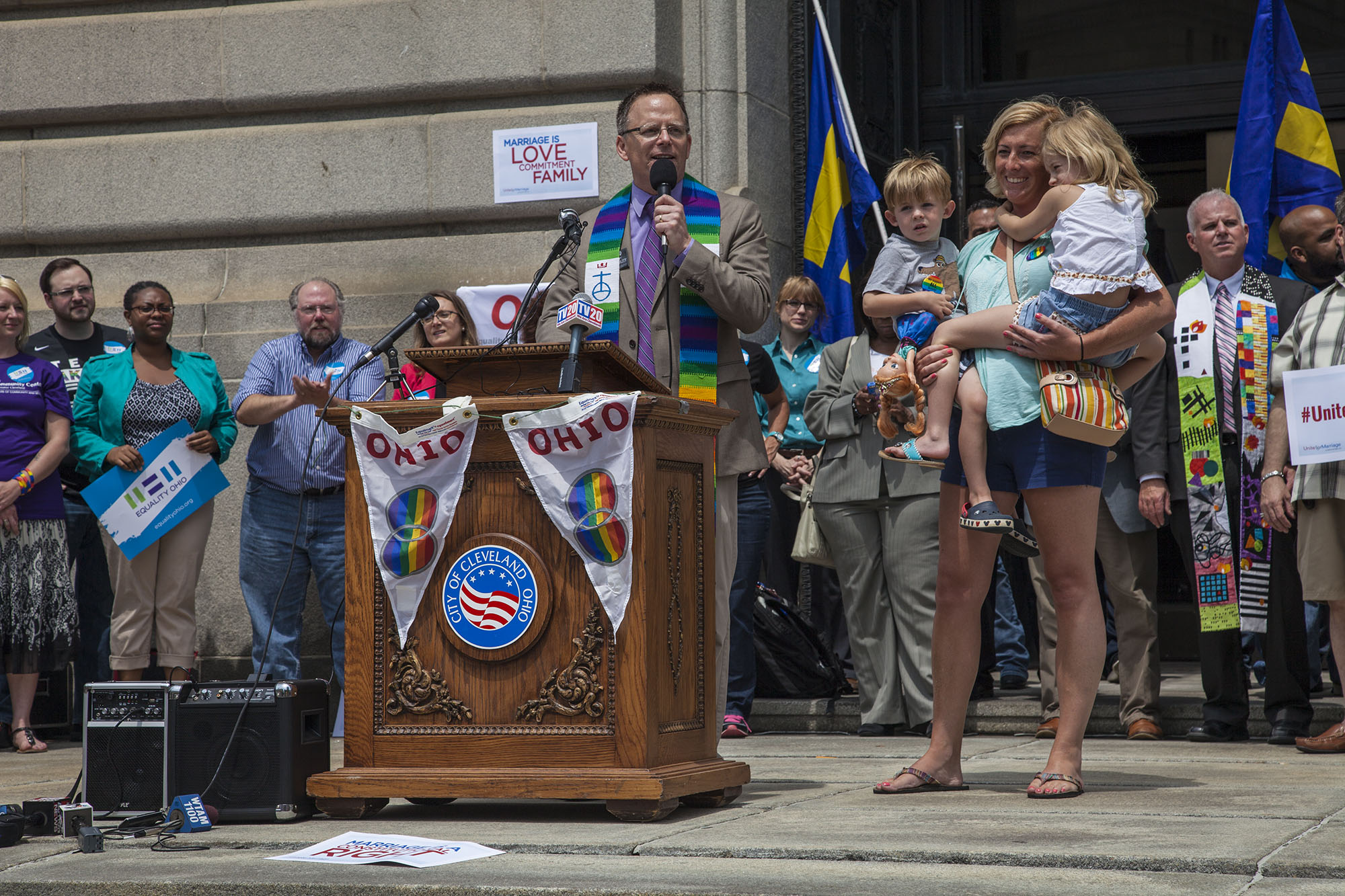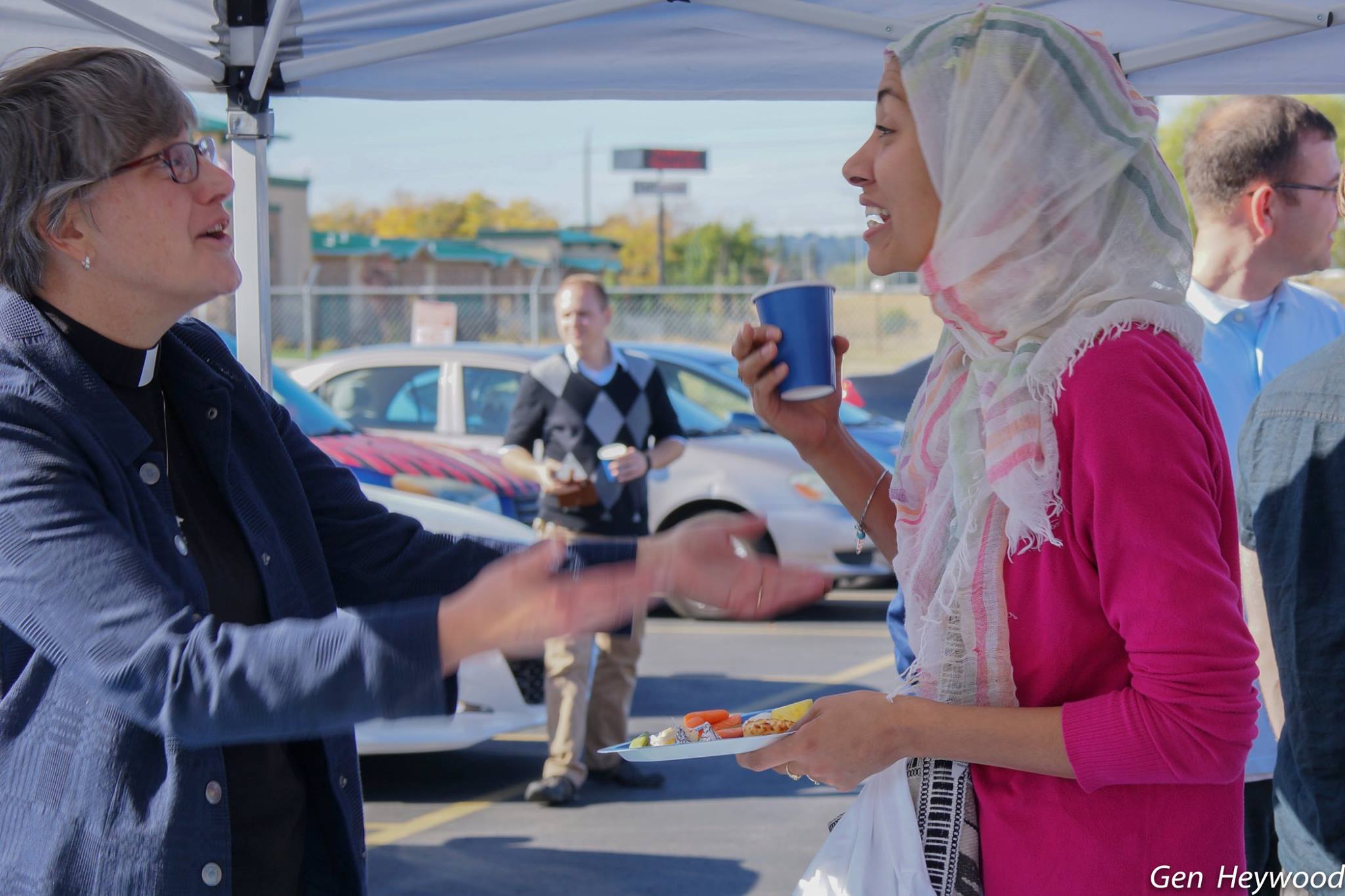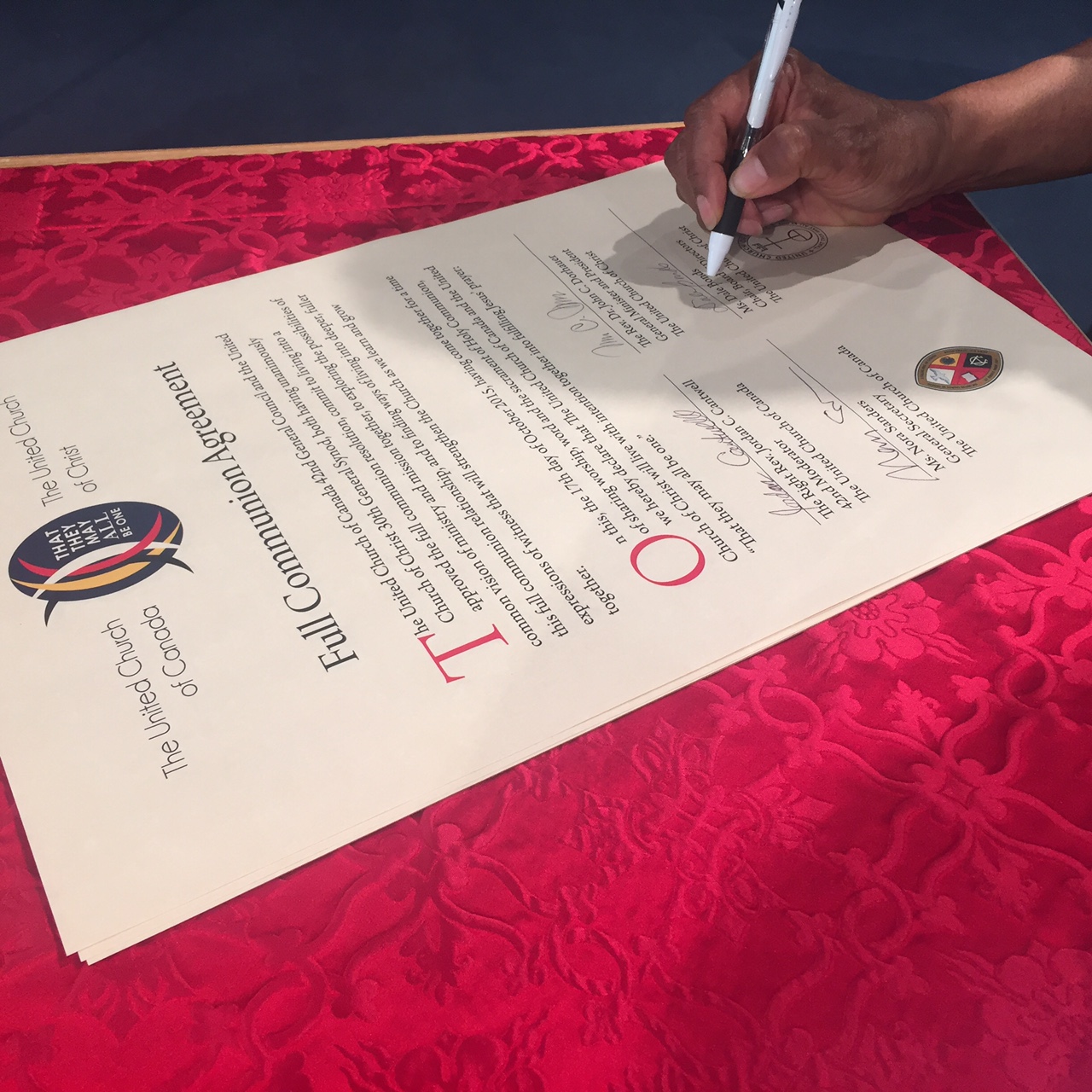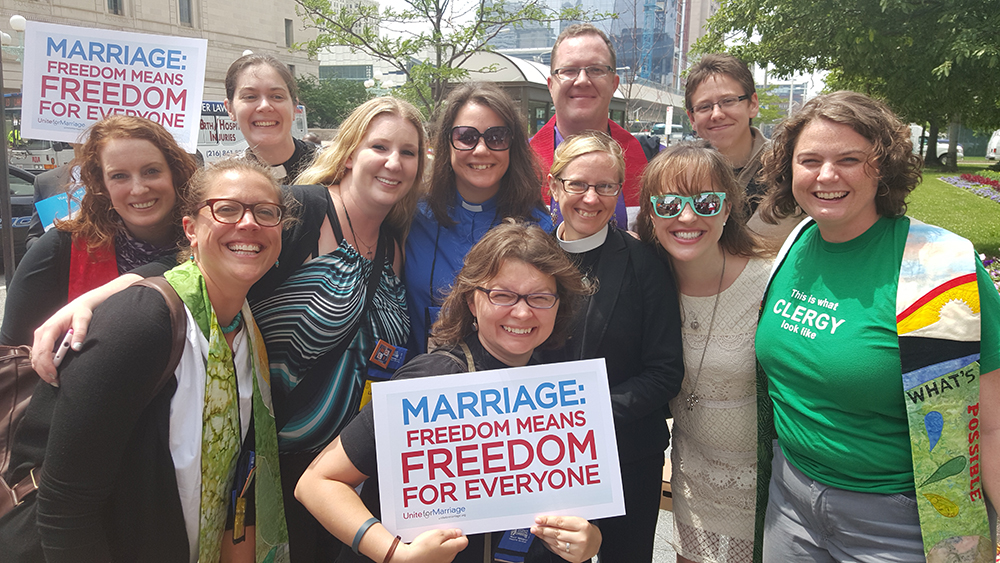Merging faith and action in 2015
In the last 12 months, the United Church of Christ celebrated a monumental moment for marriage equality, continued speaking out against racism and xenophobia, and entered into a full communion agreement with the United Church of Canada in fulfillment of Christ’s final prayer “that they may all be one.”
Those moments in 2015, a testament to how the denomination, and scores of its members, amplified a bold, public voice on issues at the core of the church’s mission.
A final chapter in the pursuit of marriage equality
 At the 2005 General Synod, the UCC took the bold step of becoming the first mainline denomination to recognize marriage rights for all couples, regardless of gender. A decade later, on June 26, the Supreme Court of the United States announced a sweeping ruling that states cannot ban same-sex marriages. With the 5-4 decision, gay marriage became legal in all 50 states.
At the 2005 General Synod, the UCC took the bold step of becoming the first mainline denomination to recognize marriage rights for all couples, regardless of gender. A decade later, on June 26, the Supreme Court of the United States announced a sweeping ruling that states cannot ban same-sex marriages. With the 5-4 decision, gay marriage became legal in all 50 states.
That ruling kicked off General Synod 2015, which celebrated the 10-year anniversary of the UCC marriage equality resolution, passed July 4, 2005, that affirmed equal marriage rights for all people, regardless of sexual orientation.
“We’ve been at this a long time, and when the final story is written on how marriage equality came to this country, it will be impossible for anyone to ignore the significant leadership that the United Church of Christ, our churches and leaders, contributed toward making this victory for LGBTQ families possible,” said the Rev. J. Bennett Guess, the first openly gay UCC national officer.
Two of the lawyers who brought the issue before the U.S. Supreme Court, Douglas Hallward-Driemeier and Mary Bonauto, belong to the UCC. Hallward-Driemeier, a member of Westmoreland Congregational UCC in Bethesda, Md., was involved with the case out of Tennessee — one of four the justices heard during scheduled arguments. Bonauto, a member of Woodfords Congregational Church UCC in Portland, Maine, represented plaintiffs from Michigan and Kentucky.
Voices of faith against racism and xenophobia
In January, the four national officers of the church issued a pastoral letter on racism, ‘A New Awakening,’ continuing to speak out against what they termed “extrajudicial killing of black and brown men and women by police officers. The UCC national leaders hoped to address divisive racial issues, by continuing advocacy and working for change toward the beloved community that Martin Luther King, Jr. dreamed to create.
“Eradicating racism will happen only as we take action to produce conditions that will allow for the fullness of life for those who have suffered its destructive impact, as we work to reorient institutions that perpetuate racist practices, and as we dismantle systems that coalesce to produce racial injustice, “the officers wrote. “We believe that the United Church in all of its settings can and must engage this kind of action as an act of faith and faithfulness to God.”
 As attention focused on the conflict in Syria and hundreds of thousands of migrants made their way from the Middle East to Europe, the Rev. John Dorhauer called the denomination’s local congregations to stand with Muslim people in response to planned anti-Muslim rallies across the country in October. That public support prompted a Pakistani Muslim couple to join a Missouri congregation during worship that weekend to thank the UCC for it bold pronouncement.
As attention focused on the conflict in Syria and hundreds of thousands of migrants made their way from the Middle East to Europe, the Rev. John Dorhauer called the denomination’s local congregations to stand with Muslim people in response to planned anti-Muslim rallies across the country in October. That public support prompted a Pakistani Muslim couple to join a Missouri congregation during worship that weekend to thank the UCC for it bold pronouncement.
The UCC and the Disciples of Christ also joined forces to express love and concern for Muslims who were being vilified due to global migration and recent terror attacks. “We stand in solidarity with communities of faith in our abhorrence of the xenophobic and racist attitudes that motivate such hate speech and actions, leaders of the two churches wrote in December. “We live with the hope that peace and justice will prevail for all of God’s children.”
Uniting the church of Christ
 Leaders from the UCC and The United Church of Canada came together in late fall to share worship, word and thanks in celebration of their newly formed communion. The governing bodies of both denominations approved the full communion agreement this summer, formally culminating with the mid-October worship service and document-signing by leaders from both denominations. Almost 400 Americans and Canadians attended the ceremony in Niagara Falls, Ontario.
Leaders from the UCC and The United Church of Canada came together in late fall to share worship, word and thanks in celebration of their newly formed communion. The governing bodies of both denominations approved the full communion agreement this summer, formally culminating with the mid-October worship service and document-signing by leaders from both denominations. Almost 400 Americans and Canadians attended the ceremony in Niagara Falls, Ontario.
“What we do here is not just a fulfillment of Christ’s prayer [that ’they may all be one], but of our faithfulness to a gospel we know has the power to change the world, Dorhauer said. “Let this be our first step in commitment to that gospel.”
The UCC also encouraged a wider dialogue on multiple religious belonging, hosting two discussions this year in April and October. The Rev. Karen Georgia A. Thompson, UCC ecumenical and interfaith officer, and one of the lead organizers of the consultation, said her vision is to “grow the conversation, and that it will help provide clergy with support as they deal with the topic and welcome ministry to people in need of community.”
Related News
A Moment of Silence
The weekend news was alarming. Two students shot and killed with 9 injured at Brown University...
Read MoreIn hope-filled worship service, UCC and United Church of Canada celebrate full communion past and future
On Saturday, Dec. 13, many from the United Church of Christ (UCC) and the United Church of...
Read More‘A Gift of God to the World:’ Christmas greetings from the General Minister and President
As Christmas quickly approaches, UCC General Minister and President/CEO the Rev. Karen Georgia...
Read More


